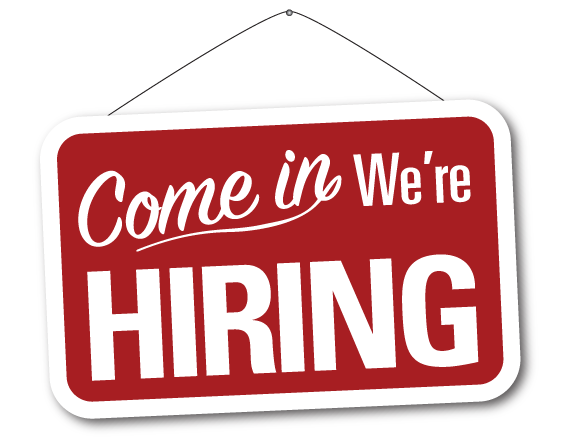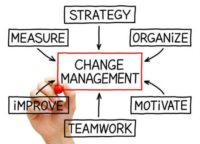The hiring process is evolving: major U.S. employers are reconsidering the significance of higher learning. An employer’s undue emphasis on university education while hiring is called “degree inflation.” As the hiring manager for NisonCo, a cannabis public relations, marketing and SEO agency, I have learned a college degree is not the best predictor of employee success.
NisonCo was established during the dawning of the modern cannabis legalization movement. At the time, our small staff included individuals with and without college degrees. I evaluated both groups of employees and learned they gave equal contributions to the team. Limiting our pool of potential candidates to university graduates would have hindered the growth of our company.
Accordingly, at NisonCo a college degree is not required to work. We believe degree inflation impedes hiring, increases payroll, encourages turnover and perpetuates social injustice. For these reasons, NisonCo encourages your cannabis company to emphasize a candidate’s skills and drive during the hiring process rather than their education.
Degree Inflation Increased in the Aftermath of The Great Recession
The Great Recession in 2008 caused a massive downturn in the U.S. economy. By 2010, the workforce had lost nearly 9 million jobs. The unemployed entered a tight labor market, and employers had the luxury of limiting potential candidates to college graduates. After the economic downturn, the number of employers requiring a college degree increased by 10%.
Employers added degree requirements to positions previously staffed by high school graduates. In 2015, 67% of job postings for production supervisors required a degree, while only 16% of current production supervisors possessed degrees. The Great Recession pushed Americans without a college degree out of the labor market.
Technological Advancements and Social Movements Confront Degree Inflation
The importance of technical skills began declining when automation entered the workforce in the 1980s. Employers suddenly required soft skills like relationship management to serve customers and resolve conflicts with partners successfully. A technologically advanced economy requires problem-solving and people skills. These skills are not usually acquired while attaining a college degree.

During the Covid-19 pandemic, companies laid off millions of employees. Many unemployed people reconsidered their relationship with work and decided to leave unfulfilling jobs. Employers are now in dire need of staff, and they no longer have the privilege of requiring a college degree during the hiring process. This degree inflation prevents recovery from the economic downturn caused by the pandemic.
The Black Lives Matter movement highlighted the need to deliver social justice to historically marginalized communities. Americans are learning these communities need economic opportunities to achieve social justice. For this reason, employers are reexamining hiring practices and identifying barriers to equity. Employers like NisonCo have recognized since company inception that degree requirements impede social justice.
Degree Inflation is Bad for your Cannabis Business
The Harvard Business School polled business leaders on their perception of the performance of employees with and without degrees. The polling revealed the hidden costs of degree inflation: pending positions, payroll premiums, poor productivity and high turnover. Undoubtedly, degree inflation is not suitable for your cannabis business.
Most employers confirmed degree inflation prevents them from hiring equipped employees. They admit that candidates without degrees may possess the skills needed to thrive in most positions. Often, degree inflation prevents the discovery of competent candidates without degrees.
Most respondents revealed that degree inflation places a premium on wages for college graduates. Many respondents also confirmed those with and without degrees provide equal contributions to their teams. Degree inflation adds unnecessary payroll and training costs to a company’s budget.
Many employers believe staff members with university degrees demand higher salaries and benefits than staff without degrees. Additionally, most respondents admitted employees with degrees demonstrate low productivity and experience high job dissatisfaction. As a result, employers witness increased turnover among college graduates. In my experience, degree inflation can prevent employers from finding productive, satisfied, and loyal employees.
5 Ways Your Cannabis Company Can Oppose Degree Inflation
- Review Your Company’s Job Descriptions and Assess Contributions to Degree Inflation
I recommend reviewing your company’s positions and determining if they are prone to degree inflation. Evaluate job descriptions written by leaders in the cannabis industry to understand if your degree requirements contribute to degree inflation and consider dropping degree requirements for positions that are common contributors to degree inflation.
- Identify the Technical and Soft Skills Needed for Positions in Your Company
 I advocate for analyzing the technical and soft skills needed for positions in your cannabis company. Review your job descriptions to determine if they require soft skills a candidate without a degree could possess. Delete degree requirements from job descriptions that do not need technical education provided by universities. Additionally, review the vetting process for candidates and remove onerous education requirements for positions requiring additional soft skills.
I advocate for analyzing the technical and soft skills needed for positions in your cannabis company. Review your job descriptions to determine if they require soft skills a candidate without a degree could possess. Delete degree requirements from job descriptions that do not need technical education provided by universities. Additionally, review the vetting process for candidates and remove onerous education requirements for positions requiring additional soft skills.
- Analyze the Costs of Your Company’s Contribution to Degree Inflation
Understanding your cannabis company’s contribution to degree inflation lowers the costs of sustaining it. Developing metrics for evaluating contributions to degree inflation helps assess the charges to your company. Realizing your company’s potential cost savings helps maintain a commitment to combating degree inflation.
- Develop Your Company’s Pipeline of Non-Degree Employees
Your cannabis company should develop alternative talent pipelines to attract non-degree employees. Investments in training create talent pipelines that give your company access to new pools of competent and productive candidates. Investments in training attract employees without college degrees and confront degree inflation.
- Expand Your Company’s Territory for Recruiting New Employees
I recommend expanding your company’s geographic footprint while recruiting. Establishing relationships with partners in new territories provides access to new pools of non-degree talent. Expansion of your recruiting territory withstands degree inflation.
The Cannabis Industry Should Commit to Combatting Degree Inflation
Legalizing cannabis began as a social justice movement to benefit historically marginalized communities, and the maturation of our industry can deliver social justice to these communities. The cannabis industry has a prime opportunity to be an excellent example for other sectors confronting degree inflation. Our industry must demonstrate how different sectors can resist the urge to support it.







